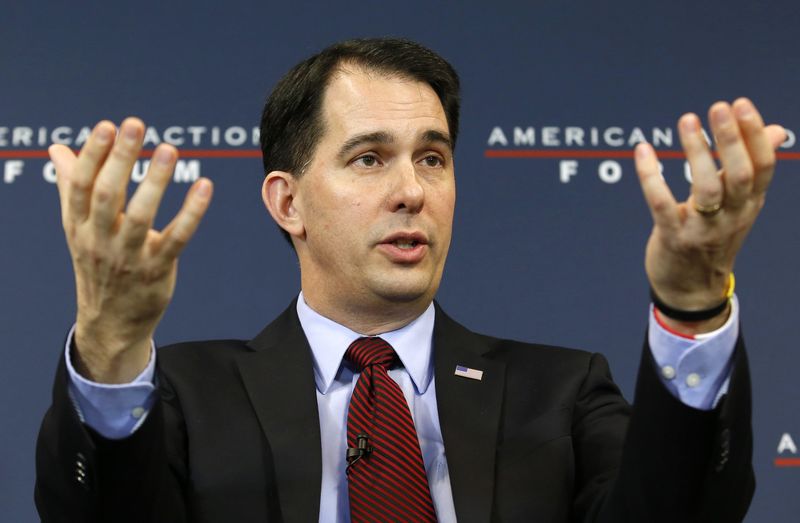Investing.com’s stocks of the week
By Sam Wilkin
LONDON (Reuters) - Wisconsin Governor Scott Walker, a potential U.S. presidential candidate, on Wednesday declined to say whether he believed that humans evolved from other life forms, a theory widely supported by scientists but rejected by many American voters.
"That's a question a politician shouldn't be involved in one way or the other," Walker said during a question-and-answer session at Chatham House, a London think tank.
Walker is visiting the United Kingdom this week to promote trade with his Midwestern state. The trip also could burnish his international resume in the early stages of the 2016 presidential race.
A potential rival in that contest, New Jersey Governor Chris Christie, stirred up controversy during a visit to London last week when he said parents should have "some measure of choice" on whether to vaccinate their children.
Walker has studiously avoided controversy on his visit.
At Chatham House, he declined to offer opinions on international matters like the fight against Islamic State, saying those issues should not be addressed while traveling outside the United States.
When asked by the moderator whether he accepted the theory of evolution, Walker also declined to answer.
"I'm here to talk about trade, not to pontificate," he said. "I love the evolution of trade in Wisconsin."
Scientists widely agree that humans have evolved from other life forms over the course of millions of years, as English naturalist Charles Darwin first proposed in 1859.
But the theory of evolution is rejected by many evangelical Christians, who view it as conflicting with the Bible's story that the universe was created in seven days.
More than four in 10 Americans reject evolutionary theory and believe that God created humans in their present form, according to a Gallup opinion poll conducted last June. Creationism runs strongest among older, more religious and less educated voters, the survey found.
Other polls have found that Republicans are more likely than Democrats to believe in creationism.
Walker has emerged as an early front-runner in what could be a crowded field of Republican candidates vying to succeed Democratic President Barack Obama in the November 2016 election.
The Wisconsin governor topped opinion polls in Iowa and New Hampshire, where the first contests in the 2016 campaign will take place, after a strong performance at a conservative forum last month. He has built a nationwide network of donors over the course of three hard-fought elections since 2010.
In a statement, Democratic National Committee spokeswoman Holly Shulman said, "All Walker showed today was the same ducking and dodging Wisconsinites know all too well, and that we've come to expect from the 2016 GOP field, whose policy positions are just too divisive to share."
